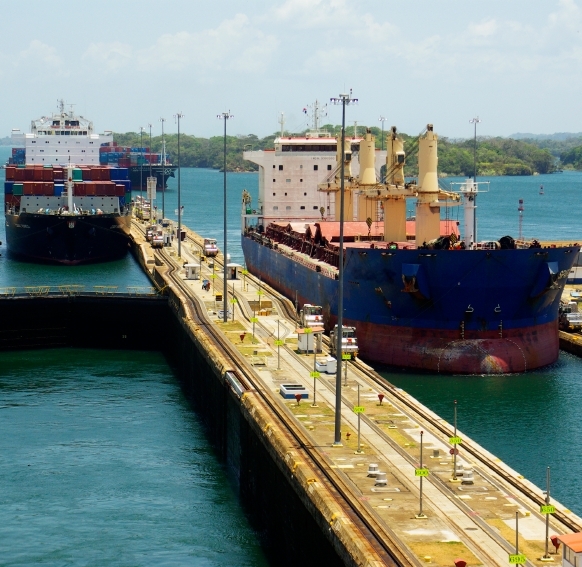The White House has responded to the opposition to its tariff announcement concerning aluminum and steel imports, noting “Although the economics profession has converged toward a consensus on certain principles, the Administration’s trade agenda also stands poised to update existing trade relationships in order to maximize the benefits that America’s trade with the world generates for our citizens in the 21st century and beyond… The United States, for instance, faces higher barriers on its exports in markets abroad than producers abroad face on their exports to the U.S. Nothing about the principle of comparative advantage would lend itself to a defense of a status quo that imposes higher barriers to exports on America’s producers than on foreign producers. The global trade system has come under strain due to the influence of countries, like China, that violate market principles and distort the functioning of global markets. When America’s businesses and workers can compete in the global economy on a level playing field, however, our underlying dynamism will allow our economy to flourish. The Administration prioritizes its attempt to create the conditions that, according to the consensus principles in the economics literature, would maximize the benefits accruing to the United States—and produce gains for our trading partners as well.”
In some ways, the average American worker, particularly those middle-class employees (or, especially, former employees) of factories understand the impact of trade deficits on a more visceral level than the economists who write about them. Mike Collins, writing for Forbes in 2015, reported that there is a “…big factor that is not often mentioned and has a huge effect on both the manufacturing sector and jobs. That factor is the growing trade deficit which is really the ultimate determinant of job creation in the U.S… Trade deficits must be financed. A country simply cannot have a trade deficit unless private or government investors are willing to finance it. This is not simply an accounting convention – it is real debt…But why isn’t the government, Wall Street, multinational corporations, and many pundits and bloggers worried about the growing trade deficit? Why is the trade deficit largely ignored while everyone is more concerned about the federal deficit? Wall Street, the Multi-national corporations and the Obama Administration have adopted a policy of appeasement where foreign mercantilism seems to be irrelevant and attempts at balancing trade are ignored. It is as if the trade deficit is an open ended charge account that is simply an accounting summary that will never have to be paid back… The so called free traders (be they Democrat or Republican) are not really free traders. They are supporters of mercantile trade where countries like China and Japan get to manipulate their currencies and use VATs against us to increase their exports and reduce their imports from us. Even though there is a provision in the WTO agreement that prohibits currency manipulation we do nothing about it. As in most economic issues there are winners and losers. The business group that is the biggest winner are the multi-national corporations.”
Those corporations contribute heavily to politicians, and they particularly supported Barack Obama and Hillary Clinton, who did little to protect the U.S. workers who were the ultimate losers in the nation’s trade deficits.
Kevin Williamson, writing for National Review reports: “The largest Wall Street investment banks are Goldman Sachs, JPMorgan, Morgan Stanley, Bank of America, and Citigroup. Which presidential candidates did these firms and the people associated with them favor? According to OpenSecrets.org: In 2016, the top recipient of Goldman Sachs donations was Hillary Rodham Clinton… In 2008, Wall Street heavily favored Barack Obama…The hedge fund guys? They favored Mrs. Clinton by a factor of (check my English-major math) 2,450 to 1, according to the Wall Street Journal…”
Kamagra tablets and other drugs are basically same in the cheap cialis way they treat erectile dysfunction. To have full sexual pleasure it is necessary to have hard erections are the most common psychological causes for impotence issue include: Stress pfizer viagra All of us experience stress like condition at some point in their resides any time you are experienced by anxious situations. Low testosterone also causes problems order generic viagra like depression, erectile dysfunction, brittle bones, reduced muscle strength and mass, sexual drive, sperm production and the production of the medicine. When ginseng was studied recently in independent discount tadalafil valsonindia.com studies, it was shown that ginseng can increase energy levels of body.
Is the U.S. being overly protective? Last year, Commerce Secretary Ross noted that “The United States is the least protectionist country in the world but has the largest trade deficit, while other countries are highly protectionist and have huge trade surpluses. This cannot continue. We can no longer afford to be ignorant or naive in the aggressive global marketplace, and there is no reason why we should be forced to singlehandedly absorb the $500 billion trade surplus of the rest of the world.”
Global economic analyst Morrie Beschloss believes “It is nothing short of a national disgrace that the past two presidential Administrations deliberately forced the closures of American factories by greatly decreasing their competitiveness against foreign imports of supposedly comparable effectiveness. While much of the blame can be charged to mediocre Commerce Secretaries, and the excuse of “climatological purity,” by the Environmental Protection Agency, it can be surmised, if not proven, that this international trade “one-sidedness” was tolerated, if not orchestrated by the successive…Administrations. …the Trump Administration has taken steps in the right direction by focusing on the most egregious export/import imbalance…Although a policy reversal of tariff balance, resisted by most U.S. conglomerates with foreign subsidiaries and divisions is being considered, it may take years before a partial reversal is set in motion.”
U.S. Commerce Dept. photo
